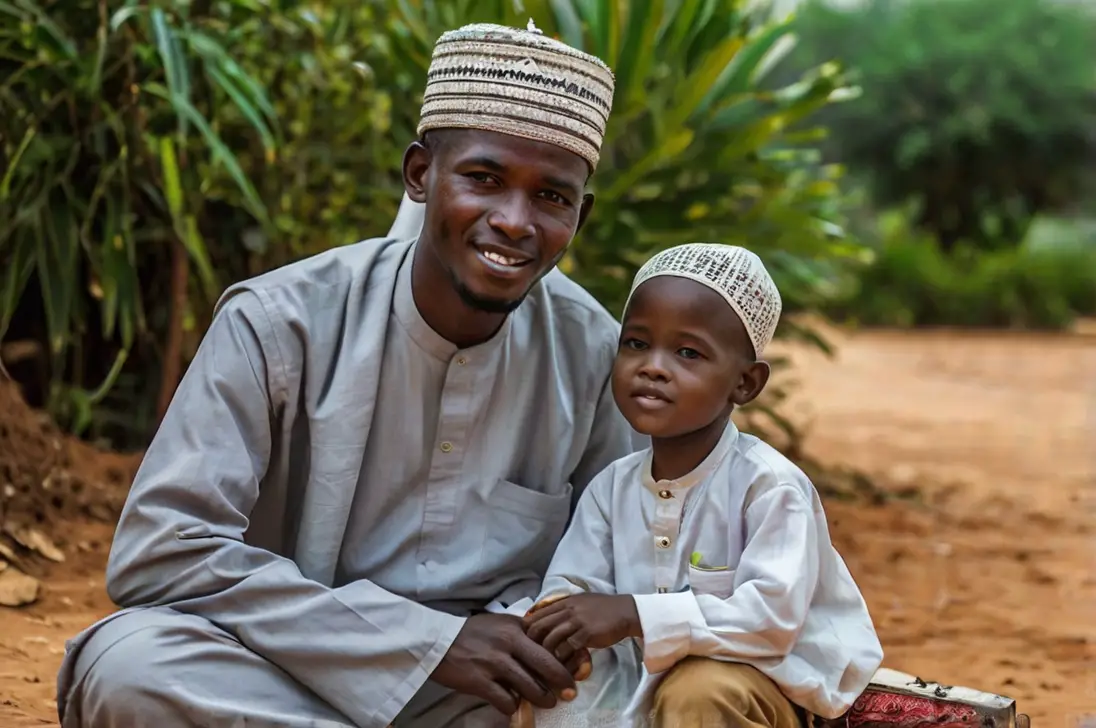
The rise of Islam in Africa is a fascinating historical journey marked by cultural integration, trade, and political dynamics.
This rich history not only shaped the continent’s religious landscape but also influenced its social, political, and economic structures.
This article explores the key aspects of Islam’s spread in Africa, from its early introduction to its modern-day presence.
Historical Context
Early introduction (7th Century)
Islam first arrived in Africa through Egypt, following the Islamic conquest led by Amr ibn al-As in 640 AD.
From Egypt, Islam spread westward to North Africa, reaching regions such as Libya, Tunisia, Algeria, and Morocco.
The Berbers, indigenous people of North Africa, played a crucial role in this early spread, embracing Islam and helping to propagate it further.
The initial spread of Islam in Africa was relatively peaceful.
Many communities converted to Islam voluntarily, attracted by the religion’s egalitarian principles and the social, economic, and political benefits that came with being part of the larger Islamic world.
- Read also: Chronicles of Faith: Tracing the Islamic Caliphates Timeline
- Read also: Beyond the Stereotypes: The Rise of Islam in America
Expansion into Sub-Saharan Africa
The expansion of Islam into Sub-Saharan Africa began around the 8th century and continued over several centuries.
This spread was facilitated by trade routes across the Sahara Desert, connecting North Africa with West Africa.
Key trading cities such as Timbuktu, Gao, and Kano became centers of Islamic learning and culture.
The Mali Empire, which rose to prominence in the 13th century, is a notable example of Islam’s influence in Sub-Saharan Africa.
Under the leadership of Mansa Musa, one of history’s wealthiest rulers, Islam flourished in the empire.
Mansa Musa’s pilgrimage to Mecca in 1324-1325 AD not only showcased his wealth but also highlighted the deep-rooted presence of Islam in West Africa.

Key Factors Contributing to the Spread
Several factors contributed to the widespread adoption of Islam in Africa:
Trade and commerce
Trade was a significant factor in the spread of Islam in Africa.
Muslim traders from North Africa and the Arabian Peninsula established trading networks across the Sahara Desert and along the East African coast.
These traders brought not only goods but also their faith.
The prosperity associated with Islamic trade networks attracted many African rulers and merchants, who saw conversion to Islam as a means to gain economic advantages and strengthen trade relations.
Political dynamics
Political alliances and the rise of Islamic states also played a crucial role.
Many African rulers adopted Islam to consolidate power and unify their territories.
For example, the Almoravid dynasty in the 11th century and the subsequent Almohad dynasty in the 12th century expanded Islamic rule in North and West Africa through military conquests and the establishment of Islamic governance.
Cultural integration
Islamic culture and education significantly influenced African societies.
Islamic scholars and missionaries established educational institutions, mosques, and centers of learning, promoting literacy and the study of Islamic texts.
The use of Arabic as a language of scholarship and administration facilitated the integration of Islamic culture into African societies.

Islam and African Societies
Islam had a significant and transformative impact on many African societies.
Here’s a detailed look at how it influenced various aspects of life:
Social structure
Islam introduced new ideas about social organization and community life.
It emphasized principles like equality before God and charity.
As a result, many African societies adopted new social norms that encouraged communal support and fairness.
This helped shape social hierarchies and relationships, sometimes integrating traditional African practices with Islamic teachings.
Legal systems
Islamic law, known as Sharia, was blended with local legal traditions.
In many regions, Sharia became part of the legal framework, influencing how laws were made and enforced.
This integration helped standardize justice and provide a legal structure that aligned with Islamic principles, such as fairness and the protection of individual rights.
Education
Islamic education played a crucial role in African societies.
Madrasas, or Islamic schools, became key centers of learning.
These institutions not only taught religious studies but also contributed to knowledge in areas like mathematics, astronomy, and medicine.
The spread of literacy and scholarly knowledge through these schools had a lasting impact on intellectual and cultural development.
Arts and architecture
Islamic influence also extended to arts and architecture.
In Africa, the design of mosques often blended traditional African architectural styles with Islamic elements.
This resulted in unique and beautiful buildings that reflected both Islamic and local artistic traditions.
Islamic calligraphy, known for its intricate and elegant style, became an important art form.
Additionally, the production of Islamic manuscripts and religious texts contributed to the rich cultural heritage of the region.

Islam in Modern Africa
Islam is a major and influential religion in modern Africa, with over 40% of the continent’s population identifying as Muslim.
Here’s a closer look at how Islam shapes contemporary African societies:
Geographic spread
Islam is widely practiced across Africa.
Countries like Nigeria, Egypt, Algeria, Sudan, and Morocco have large Muslim populations.
Each of these countries has its own unique way of integrating Islam with local customs and traditions, reflecting the rich diversity of African cultures.
Influence on politics and society
Islam plays a significant role in the politics and society of many African nations.
In some countries, Islamic principles influence laws and government policies.
For example, in certain regions, aspects of Sharia law are applied in legal systems.
Additionally, Islamic values often shape community and social norms, influencing everything from family life to business practices.
Cultural practices
Islam in Africa is not monolithic; it varies widely from one region to another.
This diversity is reflected in the different ways Islam is practiced.
For instance, Sufism, a mystical and spiritual branch of Islam, has a strong presence in many African countries.
Sufism emphasizes personal spiritual growth, community support, and a deep connection to God.
Sufi orders often organize communal activities, festivals, and rituals that help strengthen community bonds and preserve cultural heritage.
Artistic and educational contributions
Islamic influence is also visible in African art and education.
The unique blend of Islamic art and traditional African styles can be seen in architecture, calligraphy, and other art forms.
Islamic educational institutions continue to play a key role in promoting learning and intellectual development in various parts of Africa.

- Read also: Unveiling the Legacy: Ancient African Kingdoms Timeline
- Read also: Africa in the Middle Ages: Exploring Empires, Achievements, and Falls
Conclusion
The rise of Islam in Africa is a testament to the dynamic interplay of trade, politics, and culture.
From its early introduction in the 7th century to its expansion into Sub-Saharan Africa, Islam has profoundly shaped the continent’s history.
Today, it remains a vital part of African identity, influencing the lives of millions across the continent.



